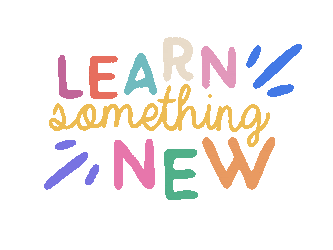Technology Coaching Methods to Improve Instruction
Technology Coaching Methods to Improve Instruction
In my former role as a classroom teacher, I had a distorted view of the role of instructional coaches. Often, I felt like coaches reduced students to data points. However, as I have transitioned into the role of a gifted specialist, I have worked closely with reading, math, and technology coaches to develop curriculum for extension groups for high ability learners and have used those same data points to identify students needing to be referred for gifted screening. I have also personally seen coaches and teachers form mutually beneficial relationships that have served to positively impact the performance of the students at my school.
"Effective instructional coaches see teachers as professionals, which means they see teachers as the ultimate decision makers about what and how they learn" (Knight, 2018, p.4). I recently observed the reading coach at my school lead a half day work shop with the kindergarten team. The teachers had an active role in making curriculum decisions, analyzing pacing guides, and determining the order in which sight words would be introduced throughout the year. "When engaging in deep coaching, instructional coaches guide teachers through a reflective process that involves setting goals, identifying teaching strategies to be implemented to reach those goals, collaboration, and adaptation of teaching and learning until the goals are met" (Knight, 2018, p. 16). I was able to observe an excellent example of instructional coaching where the teachers and the coach were focused on student performance. Our school has a large number of high ability learners and teachers are continually looking for ways to challenge them and help them grow. The student-focused goals set in the workshop will allow teachers to measure their own effectiveness. "A student-focused goal, on the other hand, provides clear feedback on whether or not changes make a difference for students. Student focused goals carry with them a built-in measure of quality" (Knight, 2018, p. 71).
Technology coaching is especially important in today's classrooms. Technology integration is becoming more ubiquitous and preparing students for their future will almost certainly involve some form of technology. However, many teachers are apprehensive when it comes to technology simply due to lack of experience. This is where coaching becomes essential. "Teachers who work with mentors use technology more frequently and efficiently than those without mentors and emerging innovative teaching practices are more common among teachers with digital technology-based pedagogical mentors than those without" (Saman & Musa, 2023, p. 2291). Technology coaches can assist teachers with technology integration by using the three phases of the Impact Cycle Model of coaching. First, they can identify the classroom needs and help introduce teachers to new technology that can address them. Secondly, coaches can help the teachers learn how to use new forms of technology by modeling and or even co-teaching. Finally, coaches help teachers improve their practices by working with them, supporting, them, and adapting teaching strategies as needed. "The Impact Cycle uses teacher and coach partnerships to support the teacher's mind, interact, and make changes in practice. Shared thinking establishes a cooperative relationship between the Instructional Coach and teachers to foster improvement" (Saman & Musa, 2023, p. 2294).
The role of technology coach is going to continue to grow in importance as tomorrow's careers will demand a strong level of technological proficiency. Coaches often learn about new useful, technology tools first that can be introduced to willing teachers' classrooms. Additionally, coaches that assist teachers in the implementation of new technology tools can help to ensure that teachers feel comfortable enough to use them. The following video from Edutopia highlights how coaches in one district help teachers integrate technology in their classrooms to the best of their ability. These coaching methods are helping to improve instruction and student performance.
References
Knight, J. (2018). The impact cycle: What instructional coaches should do to foster powerful
improvements in teaching. Corwin.
Saman, A.M., and Musa, K. (2023). Instructional coaching through technology integration:
Accompanying teacher services in the digital era of education 5.0. Institutional Journal
of Social Science and Education Research Studies, 3(11), 2291-2299.





I agree 100%! I think a lot of teachers tend to be aggravated when an instructional coach tries to work with them in our school. I have learned over the years that partnering with a coach of any kind is a great benefit to student achievement. Knight (2018) discusses the the fact that the teacher is the ultimate decision maker in the process. I think that when teachers come to understand this, they don't see working with a coach as the threat that many feel sometimes.
ReplyDeleteKim, your blog post hits the nail on the head. I read an article for a class this past summer that described some technology-hesitant teachers are scared of students misusing the technology (Winiger, et al., 2024). I think the same is likely true of teachers using technology themselves--when we are already hyper-aware of hitting standards, classroom management, and being ready for administrator visits, trying to use a brand new technology is a bit daunting! Having a coach throughout the process would bring immediate relief and expertise.
ReplyDeleteReference:
Winiger, S. R., Lancaster, D. E., Redifer, J. L., & Dewberry, W. P. (2024) K-12 teachers’ belief about and reactions to students’ off-task technology use. Journal of Research on Technology in Education, 1-12. https://doi.org/10.1080/15391523.2023.2298889